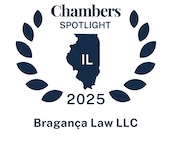- Free Strategy Session: (847) 906-3460 Tap Here to Call Us
SEC Faces Sanctions – Again!

SEC Made Numerous Material Misrepresentations to Utah District Court
***UPDATES BELOW – 3/19/24 and 6/4/24***
For a government agency with the talent and resources of the Securities and Exchange Commission, its ability to lose its focus and score an own goal is sometimes remarkable. At the same time the Supreme Court has power of administrative agency powers squarely within its cross-hairs, see, e.g., Loper Bright Enterprises, et al. v. Raimondo, et al., Dkt. No. 22-451 (Sup. Ct. argument Jan. 17. 2024) (challenge to Chevron doctrine); Axon Enterprise, Inc. v. FTC, and SEC v. Cochran, 143 S.Ct. 890 (2023) (parties can challenge constitutionality of agency action prior to adjudication on merits); AMG Capital Mgmt., Inc. v. FTC, 141 S. Ct. 1341 (2021) (restricting ability of FTC to obtain monetary redress for victims of consumer protection statutes); SEC v. Jarkesy, Dkt. No. 22-859 (Sup. Ct. argument Nov. 29, 2023) (whether SEC’s discretion to determine whether to proceed via federal court or in administrative proceedings is constitutional, and whether SEC is entitled to obtain civil penalties in administrative proceedings without a jury), the SEC’s blunders in certain high profile cases may be providing those intent on clippings its wings all the ammunition they need.
For example, last October in SEC v. Desilu Studios, Inc., et al., No. 2:22-cv-05652-JLS (C.D. Cal.), the SEC had its entire case dismissed when it sought a default judgment against the key defendant based on a blatant misrepresentation that it had properly served the defendant with its application for default. The defendant, subject to a parallel criminal proceeding, had been declared mentally incompetent by the same judge as in the SEC’s case. Federal Rule of Civil Procedure 55(b)(2) (and a similar local rule) provides that a default judgment can only be entered against an incompetent person if they are represented by a guardian or similar fiduciary. The SEC ignored that rule, so angering the district court that it not only denied the application for default but dismissed the entire case, holding that “the SEC’s misrepresentations regarding its compliance with the governing rules also undermine the Court’s confidence in the SEC’s representations regarding proper service and the merits of the case as a whole.” Dkt. 26 (C.D. Cal. Oct. 23, 2023).
SEC v. Debt Box
The SEC faces potentially greater sanctions for its misconduct in a recent case that has likely received outsized attention because it involves cryptocurrency. In SEC v. Digital Licensing, Inc., d/b/a DEBT Box, et al., No. 2:23-cv-482, 2023 U.S. Dist. LEXIS 213581 (D. Utah), the district court took the unusual step of not only dissolving a temporary restraining order (“TRO”) that the court had issued months earlier, but entered an Order to Show Cause (“Show Cause Order”) against the SEC requiring it to demonstrate why the court should not impose further sanctions against the SEC for what the court termed “false or misleading representations” made in the SEC’s filings and by its counsel in court. A hearing on the Show Cause Order will likely happen in the next few weeks.
The SEC’s complaint, which was filed under seal in July 2023, alleges that the defendants defrauded investors out of at least $49 million by selling unregistered securities called “node software licenses,” which supposedly enabled purchasers to receive crypto assets from DEBT Box. The complaint also named as a defendant a multi-level marketing company, iX Global, which partnered with DEBT Box, as well as various other individuals and entities and several relief defendants.
Ex Parte TRO and asset freeze
The SEC filed an ex parte motion for a TRO and asset freeze at the same time it filed its complaint. Such motions are heard by the court without providing notice to the defendants, and ordinarily before the defendants even know they are the target of an SEC investigation, let alone a defendant in an SEC action because the SEC requests that the court keep the case under “seal.” The SEC employs this tactic in many of its cases. See, e.g., SEC v. Zera Fin. LLC, et al., No.: SACV 23-01807-CJC (ADSx), 2023 U.S. Dist. LEXIS 215129 (C.D. Cal. Oct. 30, 2023); SEC v. Royal Bengal Logistics, Inc., et al., No. 23-61179-CIV-SINGHAL, 2023 U.S. Dist. LEXIS 181090 (S.D. Fla. June 21, 2023).
In most federal courts, the standard for a government agency to obtain a TRO or preliminary injunction is minimal – and they are routinely granted. See FTC v. Consumer Defense, LLC, 926 F. 3d 1208, (9th Cir. 2019) (federal agency seeking a preliminary injunction or temporary restraining order pursuant to statutory enforcement scheme need not demonstrate irreparable harm).
The SEC relied on this relaxed standard in its motion for TRO in the DEBT Box case, even though district courts in Utah often hold that government plaintiffs should be subject to a higher standard. Indeed, it is common knowledge amongst government regulators that the District of Utah can be quite inhospitable to government enforcement actions. See, e.g., Basic Research, LLC v. FTC, 807 F. Supp. 2d 1078 (D. Utah 2011) (denying motion to dismiss declaratory judgment action seeking clarification of administrative consent decree, despite parallel lawsuit brought by agency); Utah Div. of Consumer Protection v. Stevens, 398 F. Supp. 3d 1139 (D. Utah 2019) (dismissing action brought by state agency, holding it lacks jurisdiction to take action against Utah company for conduct occurring in Utah, but where alleged fraud targeted out-of-state victims).
SEC counsel seemed startled when the district court informed them in an ex parte hearing that it was likely to deny the motion without a further showing. The district court characterized the SEC request as “disfavored injunction,” which required it to “’make a strong showing both on the likelihood of success on the merits and on the balance of harms.’” 2023 U.S. Dist. LEXIS 213581, at *9 (quoting Colorado v. EPA, 989 874, 884 (10th Cir. 2021)).
In particular, when the district court judge informed SEC counsel that it intended to deny its application for a TRO for failure to provide support for all of the prongs private litigants are ordinarily required to prove for a TRO, and most importantly, irreparable harm. 9. SEC counsel, apparently flustered by the court’s position, proceeded to mischaracterize certain evidence, some of which had already been presented to the court, to suggest that the defendants had only recently closed several bank accounts and moved assets outside the court’s jurisdiction, and was likely still in the process of doing so. 2023 U.S. Dist. LEXIS 213581, at **9-10. To be fair to SEC counsel, although not highlighted by the judge, some of what got the SEC in trouble were statements made by SEC witnesses in declarations that were stated as categorical facts, when the SEC had presented evidence supporting just one link in a possible chain that might support its conclusion. Id. at **7-8. (Of course, those SEC witness statements were likely drafted by SEC counsel in the first place, so the blame cannot be shifted too far. In the interests of full disclosure, Bragança Law is litigating a separate case involving many of the same SEC personnel, and they have employed the same tactic, i.e., having a witness characterize a possible inference as a categorical fact.)
Relying on the SEC’s representations –whether true, false, or misleading – the district court entered the TRO, and extended it several times without objection. The court also entered a broad asset freeze and appointed a Receiver to take full control of the main corporate defendants. Id. at 11.
Defendants move to dissolve TRO
Certain defendants moved to dissolve the TRO, presenting evidence disproving, inter alia, claims of recent asset transfers and supposed efforts by the defendants to evade SEC detection. The SEC initially doubled down and tried to defend its misrepresentations. But by the time of the hearing on defendants’ motions, the SEC apparently recognized the trouble it had caused itself and not only made no effort to rebut the defendants’ contentions, but chose to not even oppose dissolution of the TRO. Id. at 15. The court dissolved the TRO, asset freeze and receivership, and then took the extraordinary step of issuing its Show Cause Order, stating:
After carefully reviewing the Commission’s filings and statements at the ex parte TRO hearing, the court is concerned the Commission made materially false and misleading representations that violated [Federal Rule of Civil Procedure] Rule 11(b) and undermined the integrity of the proceedings.
No. 2:23-cv-482 (Dkt. 215). A hearing is scheduled for later in March 2024 to determine whether the court should impose sanctions on the SEC. While the defendants were successful in undoing the TRO, asset freeze, and receivership, the victory came at a significant cost – their business was shut down for several months and they lost many or most of their employees and users.
Moreover, the substantial costs involved in operating the Receivership, including work done for the receiver by more than a half dozen lawyers from one of the largest law firms in the country, will mostly be paid out of the defendants’ previously frozen assets. And that is on top of the hundreds of thousands of dollars defendants likely paid or owe their own lawyers, representing at least ten different law firms.
SEC retreat
Although the matter is ongoing, the SEC’s initial response was extraordinary. In particular, the SEC Director of Enforcement, Gurbir Grewal, filed a declaration with the court – a very rare occurrence by someone in his position. In Grewal’s declaration, see No. 2:23-cv-482 (Dkt. 233-6) (filed Dec. 21, 2023), and other declarations filed by the SEC, see No. 2:23-cv-482 (Dkt. 233-1 through 233-5) (all filed Dec. 21, 2023), the SEC acknowledged having misrepresented some of the allegations in its request for a TRO. Grewal concluded that the SEC’s conduct “fell short” of the SEC’s standards, not only by making representations that were inaccurate, but failing to have “quickly and appropriately addressed and corrected” the misrepresentations when they were discovered.
In what might be seen as window-dressing, Grewal announced that the SEC would conduct mandatory training for all its enforcement staff in January 2024 regarding their “professional responsibilities” and any unique issues that might arise when seeking ex parte relief. Of course, SEC attorneys are already required to attend annual ethics meetings and many have an independent state bar-imposed continuing legal education requirement to take a certain number of hours focusing on ethics.
Grewal’s most consequential step, however, was to remove the entire team of lawyers from its Salt Lake City office prosecuting the case and to replace them with staff from the Commission’s Denver Regional Office. That step, however, has not deterred defendants in other cases from arguing that the SEC has engaged in similar misconduct. See, e.g., Defendants’ Notice of Supplemental Authority, SEC v. TerraForm Labs, PTE, Ltd., et al., No. 23 Civ. 1346 (S.D.N.Y. Dec. 4, 2023) Dkt. 136 (J. Rakoff).
In the course of briefing the Show Cause Order, the parties have filed dueling motions to dismiss. Debt Box has argued that the case should be dismissed with prejudice, meaning it cannot be refiled, while the SEC has sought a complete reset, asking that it be given the chance to reinvestigate the case and possibly engage in settlement discussions with the defendants, but that the dismissal be without prejudice to refile if it deems it is warranted. If the SEC were successful in getting the dismissal without prejudice, it would technically could refile the case as an administrative action, thereby escaping the jurisdiction of a federal court judge clearly frustrated by its litigation behavior. The SEC pledged that if it chose to “refile the case,” it would do so before the same judge, but it’s not obvious that an administrative action possibly including some different allegations or parties would fall under its understanding of what constitutes “the case.”
It would be quite shocking if the court grants the SEC’s request that the case be dismissed without prejudice. In addition to the substantial costs already imposed on defendants described above there have been 268 filings on the court docket as of the end of February 2024, and it is reasonable to interpret the SEC’s motion as merely an attempt to evade the substantial sanctions it may face in the current proceeding.
A court decision on both the sanctions and dismissal could come later in March 2024. The attorneys at Bragança Law have more than five decades of experience in government actions seeking temporary restraining orders, preliminary injunctions, asset freezes and receiverships. If you or your company is facing such an action, it is essential that you contact an attorney with such experience as soon as possible.
UPDATE
On March 18, 2024, the district court entered an 80-page order finding that the SEC’s misconduct in this case merited severe sanctions. Although the parties will still have to file pleadings to establish the total amounts, the Court ordered the SEC to pay all of the defendants’ attorneys fees and costs related to opposing the TRO, plus all of the fees and costs associated with the Receivership. The court declined to order the SEC to pay all of the fees and costs incurred during the entire litigation, but these amounts will still likely constitute a high six-figure, or possibly seven-figure, sanction.
Moreover, the Court was particularly troubled by the SEC’s continuing its pattern of misconduct, noting that in its pleadings opposing sanctions, the SEC failed to cite a controlling Tenth Circuit precedent on the issue of whether sovereign immunity barred a sanction — which the Court opined may have constituted an ethical breach by the SEC attorneys in and of itself.
Finally, the Court struck the SEC’s request to dismiss the case without prejudice for failure to cite any controlling authority, in violation of local rules. The Court gave the SEC an opportunity to refile the motion in compliance with the rules.
FURTHER UPDATE – 6/4/24
On May 28, 2024, the Court entered its final order for sanctions against the SEC, ordering the SEC to pay more than $1.8 million to defense counsel and the Receiver. The attorneys fees totaled approximately $1.1 million (half of that amount goes to the lead corporate counsel) and nearly $750,000 to the Receiver. Throughout the opinion, the judge made clear that there were various time entries for which the attorneys and Receiver had not sought reimbursement, but likely should have been included in the award. In particular, the Receiver heavily discounted the amount it sought, well beyond the substantially discounted rates and time-keeping policies it had agreed to at the outset of the matter — presumably simply as a gesture of good will to the SEC in the hopes of future engagements. All told, this already staggering award could have easily topped $2.5 million.
Finally, as explained in our original post, the SEC replaced its entire team from its Salt Lake City office, assigned to this case, replacing them with personnel from the SEC’s Denver office. More recently, those SEC lawyers have withdrawn from other cases to which they were assigned (including the case Braganca Law is litigating). Reportedly in April 2024, the Regional Director of the SEC’s Salt Lake City, who was part of the teams and submitted sworn testimony in both the Debt Box case and the case Braganca Law is litigating, office left the SEC. On June 4, 2024, the SEC took the further step of announcing that it was permanently closing its Salt Lake City office, although it characterized the decision as being based on attrition and budgetary issues.























